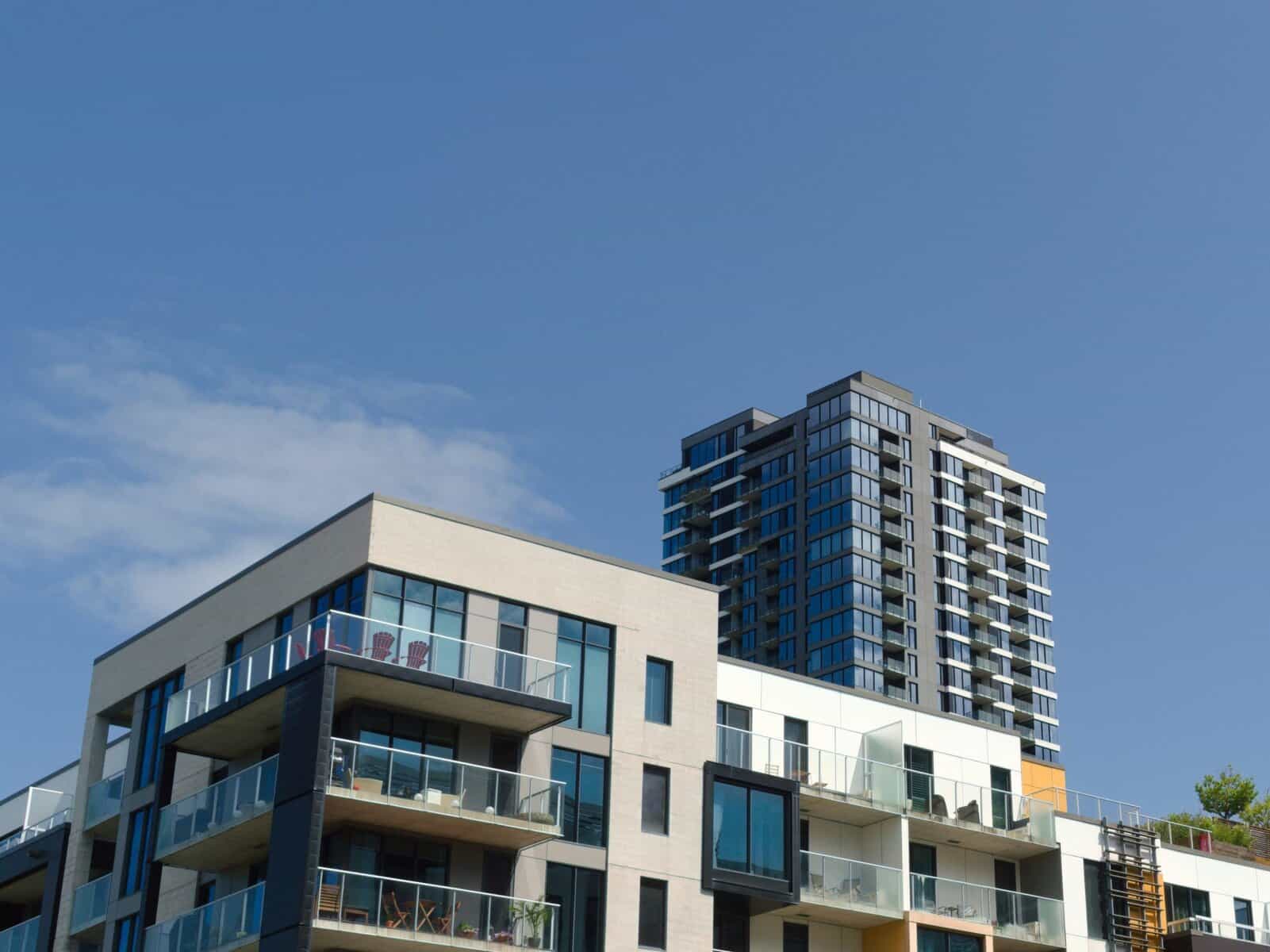There Are 72% More Condo Sellers Than Buyers in the U.S.
Would-be condo buyers are spooked by high costs, including rising HOA dues and insurance fees–but the silver lining is bargaining power. The gap between sellers and buyers has shrunk since springtime, though, when there were 81% more sellers.
There were an estimated 72.3% more condo sellers than buyers (108,945 more) nationwide in August. That marks the fifth straight month in which there have been at least 70% more condo sellers than buyers in the U.S. housing market.
That makes spring and summer 2025 the strongest buyer’s market for condo buyers in records dating back to 2013, with the exception of April 2020, when the start of the pandemic halted homebuying activity.
We estimated the number of buyers using proprietary Redfin data on the typical time from a buyer’s first tour to close of purchase, and MLS data on active listings and pending sales. The estimated number of sellers in the market is simply the number of active listings in the MLS. These estimates are seasonally adjusted and subject to revision. We define a market where there are over 10% more sellers than buyers as a buyer’s market and a market where there are over 10% fewer sellers than buyers as a seller’s market. A market where the gap is plus or minus 10% is considered a balanced market. See a more detailed methodology here and view an interactive dashboard here . Other housing-market stats in this report, including median sale price, is from a Redfin analysis of MLS data.
It’s important to emphasize that when we say “buyer’s market,” we mean a market in which there are at least 10% more sellers than buyers, not that it’s necessarily affordable to buy a condo.
There are several reasons why there aren’t nearly enough condo buyers for all the condos on the market:
High costs. Near-record prices and high mortgage rates mean sellers outnumber buyers across all property types , but the gap is especially large for condos because condo-specific costs are rising. Slow condo sales have pushed prices down slightly, but prices haven’t plummeted: The typical condo sold for $350,000 in August; down 1% year over year. Mortgage rates are still double pre-pandemic lows. HOA fees are rising in many metro areas , as are insurance costs and special assessments. For some people, that means the math of owning a condo is no longer in their favor.
New condo rules and regulations. Owning a condo has become not only increasingly expensive, but also increasingly complex. For example, Florida has instituted several new HOA regulations in the wake of the tragic 2021 Surfside condo collapse , including heightened inspection requirements and increased reserve funding. As another example, California has instituted new requirements about balcony inspections that can increase HOA fees and trigger special assessments. Additional costs and complications may encourage buyers to opt for a single-family home or townhouse with no homeowner’s association.
Florida. The Sunshine State has about 1.5 million condos; by some estimates , that’s about one-fifth of the nation’s condos. Among the 50 biggest U.S. metros, 5 of the 10 metro areas with the biggest surplus of condo sellers over buyers are in Florida. The rising costs and new rules mentioned above, along with intensifying natural disaster risks, are causing many Florida condo owners to list and pushing buyers away . There are also a fair amount of new condo buildings adding to supply.
Risk of condos losing value. On a long-term basis, condo price growth is somewhat stagnant; condo prices rose 3% from spring 2022 to spring 2025, much lower than the inflation rate for that period. One in 10 U.S. condos are at risk of selling at a loss, a higher share than other property types, according to a recent Redfin analysis .
Investor exits. Some condo investors are cashing out because the long-term and short-term rental markets have cooled, and investors are hesitant to buy for the same reason. Investor purchases of U.S. condos dropped 13% year over year in the second quarter–the biggest drop in two years.
The imbalance of condo sellers and buyers is one factor in the overall gap between home sellers and buyers in the U.S. There were an estimated 35.2% more home sellers than buyers overall in August, the second-biggest gap on record. For single-family homes, the gap was 29.7%, and for townhouses, it was 37.6%.
Some Condo Sellers Are Starting to Retreat–But Not Nearly As Fast As Buyers
The gap between condo sellers and buyers is large, but it has started to shrink. The 72% gap in August–259,638 sellers versus 150,693 buyers–is down from a peak of 81% in April.
Some would-be condo sellers, those who don’t need to sell now, have started backing off due to slow demand. Many of them don’t want to sell for less money than they want, and/or keep their condo on the market for a long time.
The typical U.S. condo that sold in August went for 2% less than its asking price, and took 58 days to go under contract, roughly two weeks longer than a year earlier and the highest August level in 12 years.
Buyers Who Want A Condo Can Get a Deal
Redfin economists say that for people who can afford it and don’t plan to sell in the next few years, it’s a good time to consider a condo if you find a listing that interests you. More condo listings than condo demand means buyers have negotiating power.
“With condo buyers in the driver’s seat and rents poised to rise as multifamily construction declines, it may be a good time to make the switch from renting an apartment to owning a condo,” said Asad Khan , a senior economist at Redfin. “Condo buyers can negotiate prices down and ask sellers for concessions, and they have a lot of options to choose from. Even though condo prices are still fairly high and HOA fees are rising, condos are still more affordable than single-family homes. That’s especially true for people planning to hold onto their condo for several years. With some would-be condo sellers pulling back, buyers may not have this much negotiating power for long.”
Meme Loggins, a Redfin Premier agent in Portland, OR, said some house hunters are starting to turn to condos. “Condo traffic has picked up slightly over the last few months because people are bargain hunting,” Loggins said. “Buyers are frustrated because costs are high; I’ve seen several people shift their search from a single-family home to a condo because that’s how they can afford a monthly payment.”
Condo buyers should do their research ahead of time on HOAs in general, and the specific building they’re interested in, to ensure they won’t be in for surprise special assessments or big cost increases. It’s a good idea to talk to a mortgage lender about bundling all the monthly costs of owning a condo, including principal, interest, taxes, insurance, HOA fees, and any potential special assessments to assess affordability in advance.
It’s also important to note that condo loans differ from traditional mortgages because lenders review both the buyer’s personal finances and those of the condo complex. This recent article from Rocket Mortgage explains condo loans in detail, and this one delves into the pros and cons of buying a condo versus a single-family home.
Summary of Seller-Buyer Gap by Property Type, August 2025
Condos
Single-family homes
Townhouse
Percent more sellers than buyers
72.3%
29.7%
37.6%
Number of sellers
259,638
1,440,833
197,379
Number of sellers, YoY
11.1%
9.2%
15.7%
Number of buyers
150,693
1,110,956
143,446
Number of buyers, YoY
-2.6%
-2.2%
-2.1%
Median sale price
$350,000
$460,000
$378,000
Median sale price, YoY
-0.9%
1.7%
0.3%
The Gap Between Condo Sellers, Buyers Is Biggest in Texas and Florida
In San Antonio, there were 585 condo sellers in August and just 120 buyers, nearly four times more sellers than buyers–the biggest gap of the 50 most populous U.S. metros. Next comes Miami, where there were 11,486 condo sellers and 3,270 buyers, i.e. 251% more sellers.
Next comes Tampa, with 5,183 condo sellers and 1,519 buyers (241% more sellers). Rounding out the top five are Nashville, TN (1,682 sellers versus 518 buyers, 225% more) and Austin (1,998 sellers versus 617 buyers, 224% more).
“Condo sellers are in a difficult situation,” said Cecilia Cordova, a Miami Redfin Premier agent. “I’d say we have enough condo inventory for two years worth of buyers; condo listings have been piling up since the Surfside building tragedy. That scared prospective buyers away from condos both because of legitimate safety fears and because it changed condo laws, which upped HOA and insurance fees. My message for people who are interested in a Miami condo: Buy it now with no competition, if you have the buffer to afford future hikes in HOA fees and special assessments.”
There are more condo sellers than buyers in all but seven of the 50 most populous metros. In Nassau County, NY, there were 2,069 condo buyers in August, roughly double the 1,079 condo sellers, the biggest surplus of buyers over sellers. Next comes Newark, NJ, where there were 641 buyers and 396 sellers. They’re followed by three other eastern metros: Montgomery County, PA (501 buyers versus 323 sellers), New Brunswick, NJ (1,197 buyers versus 855 sellers), and Cleveland (803 buyers versus 747 sellers).
Metro-Level Summary: Condo Sellers Vs. Buyers, August 2025
50 most populous U.S. metro areas
U.S. metro area
Buyers
Sellers
Percent more sellers than buyers
Anaheim, CA
1,473
2,127
44.4%
Atlanta, GA
1,253
2,969
136.9%
Austin, TX
617
1,998
223.8%
Baltimore, MD
779
925
18.8%
Boston, MA
2,704
3,322
22.9%
Charlotte, NC
381
870
128.2%
Chicago, IL
7,143
7,133
-0.1%
Cincinnati, OH
606
839
38.5%
Cleveland, OH
803
747
-6.9%
Columbus, OH
962
1,315
36.7%
Dallas, TX
577
1,776
207.8%
Denver, CO
1,056
3,070
190.8%
Detroit, MI
471
712
51.3%
Fort Lauderdale, FL
3,300
10,517
218.7%
Fort Worth, TX
105
286
172.2%
Houston, TX
771
2,422
214.3%
Indianapolis, IN
440
673
52.8%
Jacksonville, FL
578
1,808
212.5%
Kansas City, MO
173
287
66.0%
Las Vegas, NV
853
2,449
187.0%
Los Angeles, CA
2,578
4,826
87.2%
Miami, FL
3,270
11,486
251.3%
Milwaukee, WI
906
971
7.1%
Minneapolis, MN
792
1,297
63.8%
Montgomery County, PA
501
323
-35.6%
Nashville, TN
518
1,682
224.6%
Nassau County, NY
2,069
1,079
-47.9%
New Brunswick, NJ
1,197
855
-28.6%
New York, NY
7,341
7,283
-0.8%
Newark, NJ
641
396
-38.2%
Oakland, CA
733
1,271
73.4%
Orlando, FL
988
2,886
192.0%
Philadelphia, PA
657
897
36.6%
Phoenix, AZ
765
1,977
158.3%
Pittsburgh, PA
388
563
44.9%
Portland, OR
740
1,695
129.0%
Providence, RI
663
689
3.9%
Riverside, CA
1,200
2,370
97.4%
Sacramento, CA
351
624
78.1%
San Antonio, TX
120
585
385.8%
San Diego, CA
1,540
2,312
50.1%
San Francisco, CA
651
1,121
72.3%
San Jose, CA
377
598
58.5%
Seattle, WA
1,184
2,090
76.6%
St. Louis, MO
629
832
32.1%
Tampa, FL
1,519
5,183
241.2%
Virginia Beach, VA
968
1,277
31.9%
Warren, MI
1,661
1,718
3.4%
Washington, DC
2,657
3,700
39.3%
West Palm Beach, FL
2,359
6,847
190.3%
Dana Anderson
As a data journalist at Redfin, Dana Anderson writes about the numbers behind real estate trends. Redfin is a full-service real estate brokerage that uses modern technology to make clients smarter and faster. For more information about working with a Redfin real estate agent to buy or sell a home, visit our Why Redfin page.
Email Dana
Asad Khan
Asad Khan studies housing market trends and the forces behind them as a senior economist at Redfin. Previously, he was an economic consultant at Analysis Group where he worked on antitrust and valuation matters. Asad taught urban economics as a Research Fellow at the University of Wisconsin-Madison and earned a PhD in economics from the University of Illinois at Urbana-Champaign. His research has focused on the economics of city structure and zoning policy.
Email Asad
Get a home loan
that helps you win
Join us on X for more
#housingmarket updates
You Might Also Like
Information contained on this page is provided by an independent third-party content provider. This website make no warranties or representations in connection therewith. If you are affiliated with this page and would like it removed please contact editor @producerpress.com







